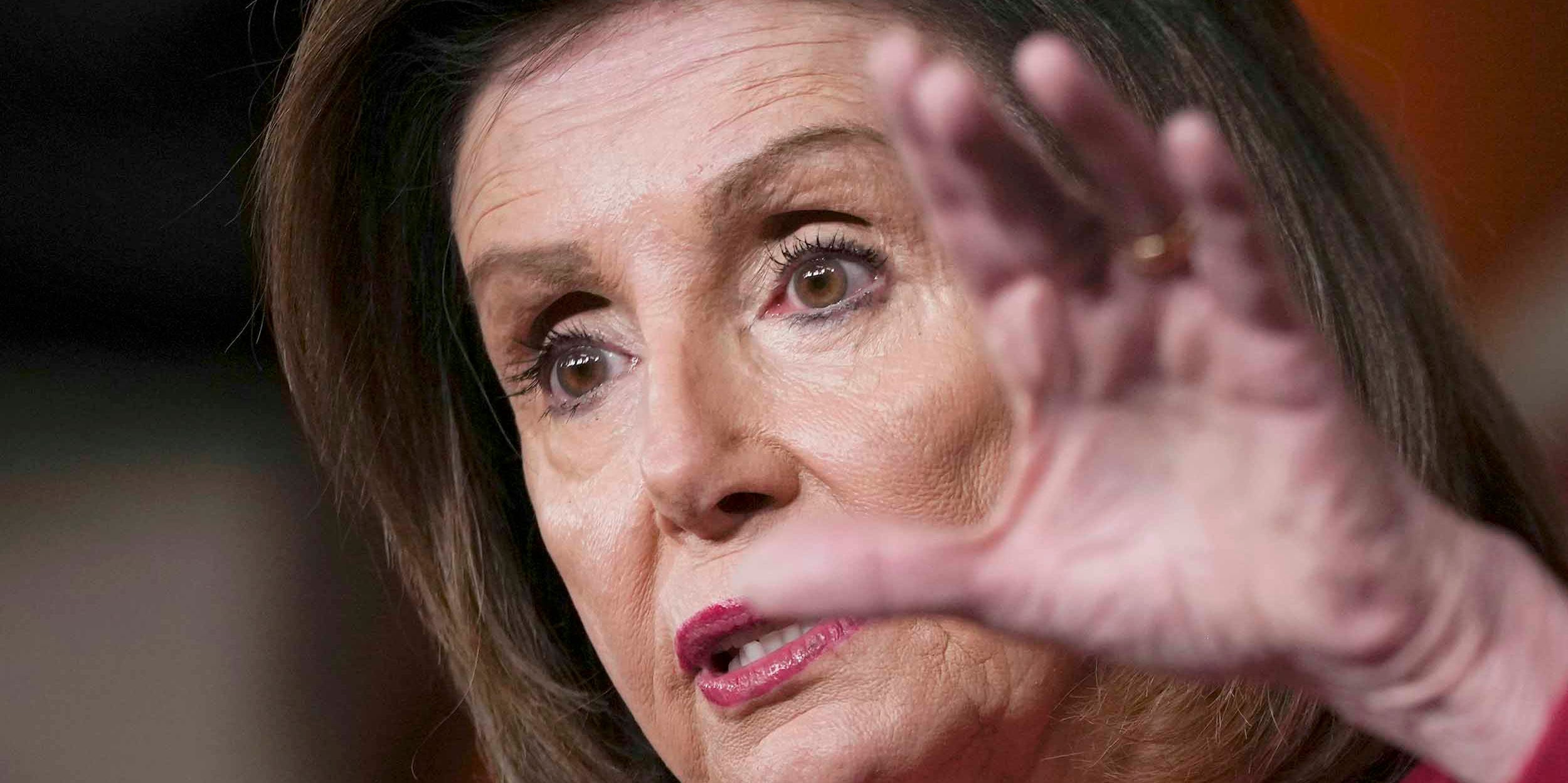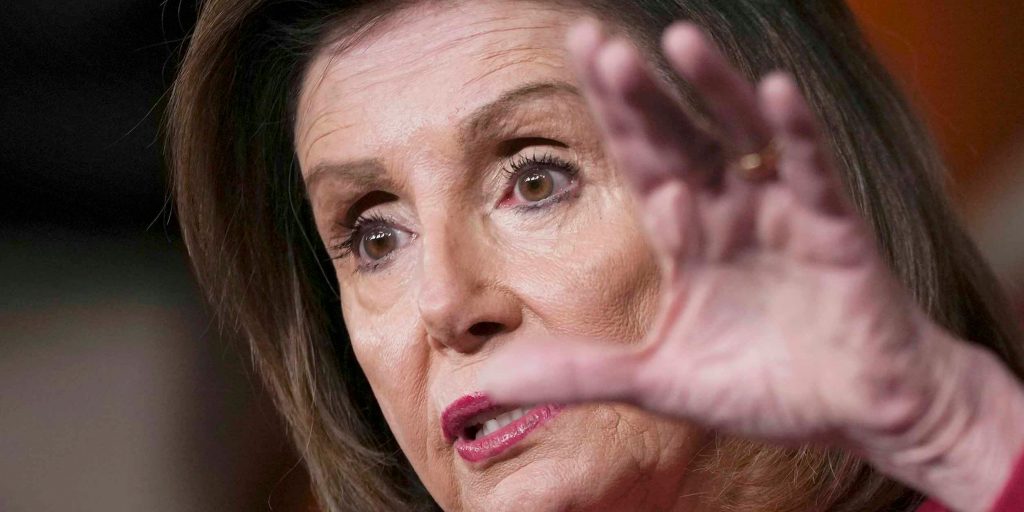
Drew Angerer/Getty Images
- Pelosi tore into American capitalism on Friday, saying it has let many people down.
- She said "our economic system" has helped some people thrive from the "exploitation" of workers and the environment.
- The same week, Biden tore into surging billionaire wealth as Democrats try to curb inequality in the US.
- See more stories on Insider's business page.
House Speaker Nancy Pelosi assailed elements of American capitalism on Friday, saying that it has let down swaths of Americans and produced widening inequality.
"In America, capitalism is our system, it is our economic system, but it has not served our economy as well as it should," she told an audience at London's Chatham House. "So what we want to do is not depart from that, but to improve it."
"You cannot have a system where the success of some springs from the exploitation of the workers and springs from the exploitation of the environment and the rest, and we have to correct that."
The California Democrat had positive words for "stakeholder capitalism," the idea companies can benefit workers and customers alongside shareholders. That's a different paradigm than "shareholder capitalism," the influential idea promoted by famed free-market economist Milton Friedman starting in the 1970s that prioritizes shareholder returns above considerations like the environment or improving wages for the middle class.
"That's just not right," Pelosi said.
Her remarks come on the heels of comments earlier in the week from President Joe Biden, assailing the surge of billionaire wealth during the pandemic. On Thursday, he made a new case for Congress to pass his $3.5 trillion social spending plan and said it's designed to level the playing field for the middle class.
"Billionaires have seen their wealth go up by $1.8 trillion," he said, citing a recent report from Americans for Tax Fairness and the Institute for Policy Studies. "Simply not fair."
"We can build an economy that gives people a fair shot this time," he said. "We can restore some sanity and fairness in our tax code."
Fears about widening inequality mounted during the pandemic, particularly among Congressional Democrats who are pushing to raise taxes on the wealthiest Americans and large corporations. It's a common refrain among progressives such as Sen. Bernie Sanders of Vermont and Rep. Alexandria Ocasio-Cortez of New York, who favor "democratic socialism," a phrase that evokes the socialism that is more mainstream in Europe but closely resembles the social-democratic policies of 1930s America under President Franklin Roosevelt: An effort to empower workers and tilt the economic scales away from large corporations.
They want to reverse much of President Donald Trump's 2017 signature tax law to finance new spending for affordable childcare, monthly cash payments to parents, tuition-free community college, and universal pre-K, among other initiatives. Republicans are opposed to the plan, arguing it would saddle many businesses with crushing tax hikes and set back the recovery.
An Insider analysis of the House Democratic tax plan and the GOP tax law found that lower-income Americans earning $30,000 and below would be among the groups with the biggest tax cuts compared to the changes enacted under Trump four years ago.

